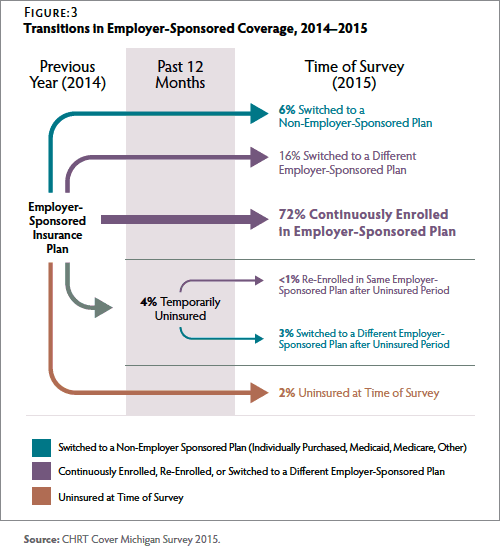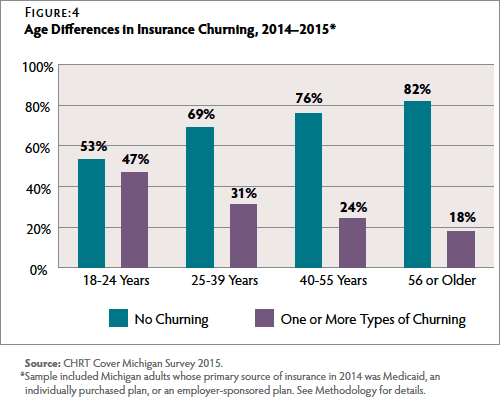Medicare for All Critics Are Telling Lies
One of the most common myths about the US health system is that if you like your insurance, you can keep it. But millions of people are thrown off their employer-based coverage every year — so the only solution is Medicare for All.

Supporters hold signs as US Sen. Bernie Sanders (I-VT) speaks during a health care rally at the 2017 Convention of the California Nurses Association/National Nurses Organizing Committee on September 22, 2017 in San Francisco, California. Justin Sullivan / Getty
Nancy Pelosi said this about Medicare for All the other day:
“When most people say they’re for Medicare-for-all, I think they mean health care for all. Let’s see what that means. A lot of people love having their employer-based insurance and the Affordable Care Act gave them better benefits,” said Pelosi, who shepherded the ACA through Congress in 2009 and 2010 in her first speakership.
The bolded part is probably the most dishonest argument in the entire Medicare for All debate. It implies that, under our current health insurance system, people who like their employer-based insurance can hold onto it. This then is contrasted with a Medicare for All transition where people will lose their employer-based insurance as part of being shifted over to an excellent government plan. But the truth is that people who love their employer-based insurance do not get to hold onto it in our current system. Instead, they lose that insurance constantly, all the time, over and over again. It is a complete nightmare.
I have illustrated this point previously by showing just how often people switch jobs. The latest JOLTS data shows that, in 2018, 66.1 million workers separated from their job at some point. And longitudinal data from BLS shows that the average worker has 11.9 different jobs by the time they are fifty. This labor turnover data leaves little doubt that people with employer-sponsored insurance are losing that insurance constantly, as are their spouses and kids.
But we don’t need to indirectly surmise this fact from labor turnover data. A study from the University of Michigan tracked insurance churn directly by surveying Michiganders in 2014 about their health insurance situation and then following up with survey participants twelve months later. The amount of insurance churn they picked up was even higher than I would have imagined.
Among those who had employer-sponsored insurance in 2014, only 72 percent were continuously enrolled in that insurance for the next twelve months. This means that 28 percent of people on an employer plan were not on that same plan one year later. You like your employer health plan? You better cross your fingers because one in four people on employer plans will come off their plan in the next twelve months.

The situation is even worse for other kinds of insurance. One thing opponents of Medicare for All frequently say is that poor people in the US are already covered by free insurance in the form of Medicaid and that Medicare for All therefore offers them relatively little net benefit while potentially raising their taxes some. But what this argument misses, among other things, is that people on Medicaid churn off it frequently, with many churning into un-insurance.
According to the Michigan researchers, a whopping 30 percent of Michiganders on Medicaid in 2014 faced a spell of un-insurance in the twelve months after they were initially interviewed. Medicaid is a godsend for many, but it’s wildly unstable coverage, and that’s even in a state where the GOP is not doing everything it can to kick people off the Medicaid rolls.

As with many things in current US politics, the divide of opinion on whether Medicare for All is a good idea is heavily generational. Young people are for it. Old people are more skeptical. This age gap is probably mostly driven by ideological differences between the generations: the current crop of young people is much more left-wing than the current crop of old people. But there may also be an objective material basis for this divide. In this Michigan survey, 47 percent of adults aged eighteen to twenty-four churned off their insurance plan during the twelve-month survey span. Only 18 percent of adults fifty-six or older did.

It is easy therefore to see why young people are not as spooked by the idea of losing their current insurance as part of the transition to a Medicare for All system: half of them already lose their insurance every single year. Although older people have it somewhat better, it is worth emphasizing that their churn is still unacceptably high with nearly one in five of them churning off their insurance every year.
Critics of Medicare for All are right to point out that losing your insurance sucks. But the only way to stop that from happening to people is to create a seamless system where people do not constantly churn on and off of insurance. Medicare for All offers that. Our current system offers the exact opposite. If you like losing your insurance all the time, then our current health care system is the right one for you. If you like having permanent coverage no matter your life situation, then you should want Medicare for All.